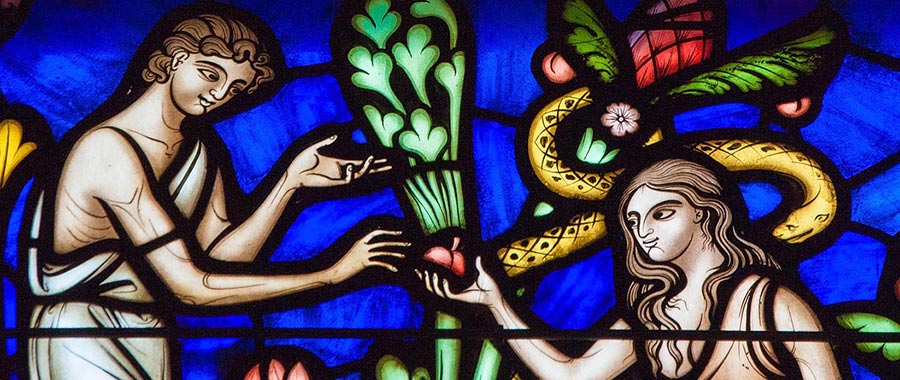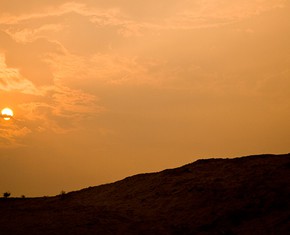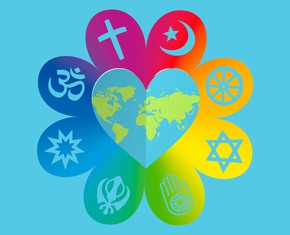The views expressed in our content reflect individual perspectives and do not represent the authoritative views of the Baha'i Faith.
Some would say, as the Book of Exodus in the Old Testament does, that the sins of the father are visited upon the children.
And the Lord passed by before him, and proclaimed, The Lord, The Lord God, merciful and gracious, longsuffering, and abundant in goodness and truth,
Keeping mercy for thousands, forgiving iniquity and transgression and sin, and that will by no means clear the guilty; visiting the iniquity of the fathers upon the children, and upon the children’s children, unto the third and to the fourth generation. – Exodus 34:6-7.
Do you believe that children inherit the sins of their fathers? It’s a popular idea—maybe a million movies, television dramas, books, albums and other works of art all utilize that one ancient theme. Google the phrase and you’ll see what a wide impact the idea has had over time.
But if you look carefully, you’ll see that the handful of Biblical references about the sins of the father are completely contradicted by other Biblical passages like this one:
Yet say ye, Why? doth not the son bear the iniquity of the father? When the son hath done that which is lawful and right, [and] hath kept all my statutes, and hath done them, he shall surely live.
The soul that sinneth, it shall die. The son shall not bear the iniquity of the father, neither shall the father bear the iniquity of the son: the righteousness of the righteous shall be upon him, and the wickedness of the wicked shall be upon him. – Ezekiel 18:19-20.
This seems a lot more logical, doesn’t it? After all, what fair and just Creator would make children pay for the sins of their parents—or all humanity responsible for the sins of their ancestors? The Baha’i teachings make that exact point about the doctrine of original sin:
Could we conceive of the Divinity, Who is Justice itself, inflicting punishment upon the posterity of Adam for Adam’s own sin and disobedience? Even if we should see a governor, an earthly ruler punishing a son for the wrongdoing of his father, we would look upon that ruler as an unjust man. Granted the father committed a wrong, what was the wrong committed by the son? There is no connection between the two. Adam’s sin was not the sin of His posterity, especially as Adam is a thousand generations back of the man today. If the father of a thousand generations committed a sin, is it just to demand that the present generation should suffer the consequences thereof? – Abdu’l-Baha, The Promulgation of Universal Peace, p. 449.
In some Christian dogma, original sin—attributed to Adam when he ate that apple from the forbidden tree of knowledge—means that we all share a collective, essentially sinful human nature we can’t escape. When you hear the phrase “Jesus died for your sins,” it means that Christ’s crucifixion was supposed to expiate our universal human sinfulness, as long as we believed in him.
Christ himself never taught the doctrine of original sin, though. It was the invention of Irenaeus, the Bishop of Lyon, who developed and formalized it in France in the 2nd Century. Irenaeus used his newly-invented doctrine of original sin to counter the arguments of the gnostics, the early mystical Christians who did not accept the authority or the doctrinaire views of the developing church. If human beings were all inherently sinful, Irenaeus reasoned, then they could only escape that condition by turning to the church and its clergy for forgiveness.
This concept of “sin” doesn’t appear very often in the Baha’i writings. That’s because the Baha’i teachings generally don’t separate human actions into simplistic black-and-white categories like “good” and “sinful.” Instead, Baha’is view evil and sin in a more nuanced way, as imperfections that come from the lower nature of each human being; and see our higher natures as the result of spiritual education and development:
Evil is imperfection. Sin is the state of man in the world of the baser nature, for in nature exist defects such as injustice, tyranny, hatred, hostility, strife: these are characteristics of the lower plane of nature. These are the sins of the world, the fruits of the tree from which Adam did eat. Through education we must free ourselves from these imperfections. The Prophets of God have been sent, the Holy Books have been written, so that man may be made free. Just as he is born into this world of imperfection from the womb of his earthly mother, so is he born into the world of spirit through divine education. When a man is born into the world of phenomena he finds the universe; when he is born from this world to the world of the spirit, he finds the Kingdom. – Abdu’l-Baha, Paris Talks, p. 177.
This viewpoint, which describes the symbolic fruits of Adam’s tree as nature’s innate defects, encourages us to free ourselves from those negative qualities and characteristics through “divine education.” What does that mean? The Baha’i teachings describe divine education as entering into the “realm of light:”
As long as man is a captive of habit, pursuing the dictates of self and desire, he is vanquished and defeated. This passionate personal ego takes the reins from his hands, crowds out the qualities of the divine ego and changes him into an animal, a creature unable to judge good from evil, or to distinguish light from darkness. He becomes blind to divine attributes, for this acquired individuality, the result of an evil routine of thought becomes the dominant note of his life.
May all of you be freed from these dangers and delivered from the world of desires that you may enter into the realm of light and become divine, radiant, merciful, Godlike.
All that has been created is for man who is at the apex of creation and who must be thankful for the divine bestowals, so that through his gratitude he may learn to understand life as a divine benefit. If we hold enmity with life, we are ingrates, for our material and spiritual existence is the outward evidences of the divine mercy. Therefore we must be happy and pass our time in praises, appreciating all things. – Abdu’l-Baha, Divine Philosophy, p. 133.
Life, Abdu’l-Baha said, is a divine benefit. We exist to be free, to be happy, to appreciate all things. We are not “born in sin.” Baha’is believe that a beneficent God created us out of love, and that love befits an attitude of gratitude, thankfulness and praise on our parts.
But how can we possibly have that attitude all the time? What about when things go wrong, or we encounter injustice in the world? Shouldn’t we speak out, criticize, protest and object?
In this series of essays, we’ll explore the Baha’i teachings on those important questions.
You May Also Like
Comments

















Keep it up!!
By the way I was a R. C. ... ; not anymore ... became tired of all those LIES.
Am a Baha-i.
Am most grateful to God ... my eyes have been healed ... and now I see!!!